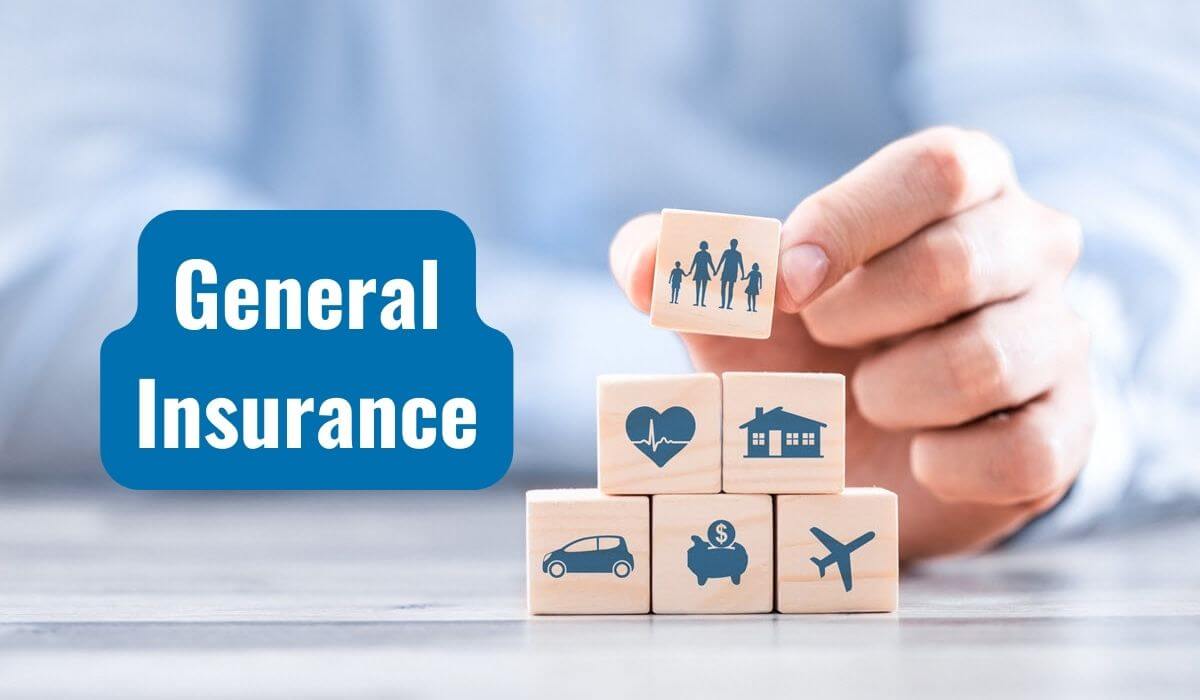Had a Car Accident? What Should You Do?
You’re driving down the road, minding your own business, when suddenly, bam! You’re in a car accident. It can be a scary and confusing experience, but it’s important to stay calm and know what to do. Here are a few steps to follow if you’ve been in a car accident:
Stay Calm and Ensure Safety
After a car accident, it’s natural to feel shaken up. But it’s important to stay calm and collected so you can make the best decisions for yourself and others. First, check to make sure you and your passengers are okay. If anyone is injured, call 911 immediately. Then, move your car to a safe location, if possible. If you can’t move your car, stay inside and wait for help to arrive. Once you’re in a safe place, take a few deep breaths and try to relax. It’s also a good idea to write down everything you remember about the accident while it’s still fresh in your mind.
Once you’ve calmed down and ensured the safety of yourself and others, it’s time to start thinking about what to do next. Here are a few things you’ll need to do:
- Exchange information with the other driver(s) involved in the accident.
- Get a police report if possible.
- Take pictures of the damage to your car and the other vehicles involved.
- Get the names and contact information of any witnesses.
- Report the accident to your insurance company.
After you’ve taken care of the immediate aftermath of the accident, it’s important to take care of yourself both physically and emotionally. If you’re feeling pain, see a doctor as soon as possible. And if you’re feeling stressed or anxious, talk to a therapist or counselor. Car accidents can be traumatic, so it’s important to seek help if you need it.
Had a Car Accident? What Should I Do?
In the aftermath of a car accident, it’s easy to feel overwhelmed and unsure of what to do. But knowing what steps to take can help protect your health, your rights, and your wallet. Here’s a step-by-step guide to what to do after a car accident:
**Check for Injuries**
After a car accident, your first priority should be to check for injuries. Start by assessing yourself for any pain or discomfort. Even if you don’t feel injured, it’s important to get checked out by a doctor, as some injuries may not be immediately apparent. Once you’ve checked yourself for injuries, check your passengers as well. If anyone is injured, call 911 immediately.
**Exchange Information**
Once you’ve checked for injuries, exchange insurance information with the other drivers involved in the accident. This includes your name, address, phone number, insurance company, and policy number. You should also get the names and contact information of any witnesses. If possible, take pictures of the accident scene, including damage to both vehicles and any other relevant details. These photos can be helpful for insurance purposes and for proving fault if necessary.
**File a Police Report**
In most cases, you should file a police report after a car accident. This is especially important if there are any injuries or serious damage to property. The police report will document the accident and provide an official record of what happened. You can use this report to file an insurance claim or to prove fault if necessary.
**Contact Your Insurance Company**
As soon as possible after the accident, contact your insurance company to report the accident. They will be able to guide you through the claims process and help you get your car repaired or replaced.
**Get a Medical Evaluation**
Even if you don’t feel injured, it’s important to get a medical evaluation after a car accident. Some injuries, such as whiplash, may not be immediately apparent. A doctor can check for any hidden injuries and provide treatment if necessary.
**Protect Your Rights**
After a car accident, it’s important to protect your rights. This means not admitting fault and not signing any documents without first talking to an attorney. You may also want to consider hiring an attorney to help you with your insurance claim or to represent you in court if necessary.
Had a Car Accident? What Should You Do?
Been in a car accident? Don’t panic! Here’s what you need to do to protect yourself and your interests:
Exchange Information
First things first, gather contact and insurance details from all parties involved, including witnesses. Exchange names, addresses, phone numbers, and email addresses. Make sure to get the make, model, and license plate numbers of all vehicles involved. Jot down the names and badge numbers of any responding police officers. It’s like gathering clues at a crime scene!
Don’t forget to ask witnesses for their accounts of what happened. Their unbiased perspectives can be invaluable later on.
Here’s a handy tip: Imagine you’re a detective on the case. Gather all the evidence you can to piece together the puzzle of what transpired. Remember, the more information you have, the better equipped you’ll be to navigate the aftermath.
Now, let’s move on to the next crucial step. It’s time to document the scene like a seasoned photographer!
Had a Car Accident? What Should I Do?
In the aftermath of a car accident, adrenaline often clouds our judgment, making it difficult to think clearly. However, taking prompt and appropriate action is crucial to protect your health, rights, and potential insurance claims. Here’s a comprehensive guide on what to do if you’ve had a car accident:
Document the Scene
Immediately following the accident, prioritize documenting the scene. This includes taking photos or videos of the damage to both vehicles, any injuries incurred, and the surrounding area. Note down details such as the time and location of the accident, weather conditions, and any traffic signs or signals that may have been involved. This documentation serves as essential evidence for insurance companies, police reports, and potential legal proceedings.
Call the Police
Contact the police immediately, even if the accident appears minor. Their presence ensures an official record is created, which can protect you from false claims or disputes. The police will also assist in traffic control and exchange of information with the other driver(s) involved.
Exchange Information
Once the scene is secured, exchange the following information with the other driver(s): name, contact details, insurance company, policy number, and vehicle registration details. Obtain a copy of the police report, if available, as it will provide an impartial account of the incident.
Seek Medical Attention
Even if you don’t feel injured immediately, it’s crucial to seek medical attention as soon as possible. Some injuries, such as whiplash, may not manifest symptoms until later. A medical exam will document any injuries and provide necessary treatment.
Contact Your Insurance Company
Promptly notify your insurance company about the accident. Provide them with all the information you’ve gathered, including photos, police report, and medical records. Your insurance company will guide you through the claims process and help you recover compensation for any damages or injuries incurred.
Hire an Attorney (Optional)
Depending on the severity of the accident and the complexity of the legal issues involved, consider consulting with an attorney. An experienced attorney can help you navigate the legal process, protect your rights, and maximize your potential compensation.
Additional Tips
– Stay calm and collected at the scene of the accident.
– Never admit fault or sign any documents without consulting with your insurance company or attorney.
– Cooperate with the police and provide them with accurate information.
– Report the accident to your state’s motor vehicle department, as required by law.
– Keep a record of all expenses related to the accident, such as medical bills and repair costs.
Had a Car Accident? What Should You Do?
In the aftermath of a car accident, the rush of adrenaline can make it hard to think straight. However, staying calm and taking the necessary steps can help protect your interests and ensure the safety of all parties involved. Here’s a comprehensive guide to what you should do after a car accident:
File a Police Report
Even if the accident seems minor, reporting it to the police is crucial. An official police report provides an impartial record of the event and includes important details such as:
- Time and location of the accident
- Names and contact information of the drivers involved
- Description of the vehicles involved
- Witness statements and photos
Exchange Information
After the police arrive, exchange the following information with the other drivers involved:
- Name, address, and phone number
- Driver’s license information
- Insurance company and policy number
- License plate numbers
- Make, model, and color of vehicles
Document the Scene
Take photos of the accident scene from multiple angles, including the damage to your vehicle and any injuries you or other passengers may have sustained. Note down the weather conditions, time of day, and any other relevant details.
Seek Medical Attention
Even if you don’t feel any pain immediately, it’s important to seek medical attention. Some injuries, such as whiplash, may not have noticeable symptoms until days or weeks later.
Contact Your Insurance Company
Notify your insurance company as soon as possible to report the accident and initiate the claims process. Provide them with all the information you’ve gathered, including the police report and photos of the scene.
Report the Accident to Your Employer
If you are unable to work due to injuries sustained in the accident, inform your employer promptly. They may have a process in place to provide you with time off or assistance.
Had a Car Accident? Here’s What You Should Do
Car accidents are unnerving and can leave you feeling shaken and confused. In the aftermath of an accident, it’s crucial to take the right steps to protect your health and well-being. Here’s a comprehensive guide to help you navigate the aftermath of a car accident and ensure you’re getting the support you need:
1. Ensure Your Safety
Your safety is paramount. If possible, move your vehicle to a safe location. Turn on your hazard lights and stay inside your car until help arrives. Check for injuries and call 911 if anyone is hurt. Remember, your health comes first, so don’t hesitate to seek medical attention.
2. Exchange Information
Once you’re safe, exchange information with the other driver(s) involved. Note down their names, addresses, phone numbers, insurance details, and license plate numbers. This information will be crucial for filing insurance claims and reporting the accident to the authorities.
3. Collect Evidence
Document the accident scene thoroughly. Take photos of the damage to your vehicle, any injuries sustained, and the overall scene. Jot down notes about the accident, including the weather conditions, road conditions, and any contributing factors. This documentation will provide valuable evidence for insurance claims and potential legal proceedings.
4. Report the Accident
Reporting the accident to the police is essential. They will create an official accident report, which can be helpful for insurance purposes and any legal claims. It’s also vital to notify your state’s Department of Motor Vehicles (DMV) within a specific timeframe.
5. Seek Medical Attention
Even if you don’t feel injured, it’s wise to get checked out by a doctor. Some injuries, like whiplash, may not manifest immediately. A medical evaluation ensures your well-being and establishes a record of your injuries for insurance and legal purposes.
6. Notify Your Insurance Company
Inform your insurance provider about the accident as soon as possible to initiate the claims process. They will guide you through the steps, assess your damages, and assist with repairs. It’s important to be honest and thorough when providing details to your insurance company to ensure you receive fair compensation.
Here are some additional tips to help you navigate the claims process:
- Document everything: Keep a record of all communication with your insurance company, including emails, phone calls, and any documents they send you.
- Be patient: Insurance claims can take time to process, so don’t get discouraged if you don’t hear back right away.
- Consider getting an attorney: If you have serious injuries or the other driver is disputing fault, it may be wise to consult with an attorney who specializes in car accident cases.
Remember, you’re not alone after a car accident. By following these steps and staying organized, you can protect your rights and ensure you receive the support you need to recover and move forward.
Had a Car Accident? Here’s What You Need to Do
In the aftermath of a car accident, it’s natural to feel overwhelmed. The adrenaline pumping through your veins can make it difficult to think straight, and the fear of the unknown can be paralyzing. But it’s crucial to stay calm and take the right steps to protect yourself and your interests.
Seek Legal Advice
If the accident involves significant injuries or disputes over fault, consulting an attorney is wise. An experienced lawyer can help you understand your rights, guide you through the legal process, and negotiate a fair settlement on your behalf.
Document the Accident
Take detailed notes about the accident, including the time, location, and any witnesses. If possible, take pictures of the damage to your car and the other vehicles involved. These records will be invaluable in proving your case if you need to file a claim or go to court.
Get Checked by a Doctor
Even if you don’t feel injured, it’s essential to get checked by a doctor. Some injuries, such as whiplash, may not manifest immediately. A medical examination will help rule out any underlying problems and provide documentation for your insurance company.
File a Police Report
In most cases, you’ll need to file a police report after a car accident. This report will provide an official record of the incident and can be used as evidence in legal proceedings.
Call Your Insurance Company
Contact your insurance company as soon as possible to report the accident. They will guide you through the claims process and help you get your car repaired or replaced.
Be Patient
The process of recovering from a car accident can be long and frustrating. There will be paperwork to fill out, appointments to attend, and negotiations with insurance companies. But don’t give up. Stay patient and persistent, and you’ll eventually be able to move on with your life.
Remember, you are not alone. Millions of people have been in car accidents, and there are many resources available to help you through this difficult time. Don’t hesitate to reach out for support from friends, family, or professionals if you need it.




Leave a Reply